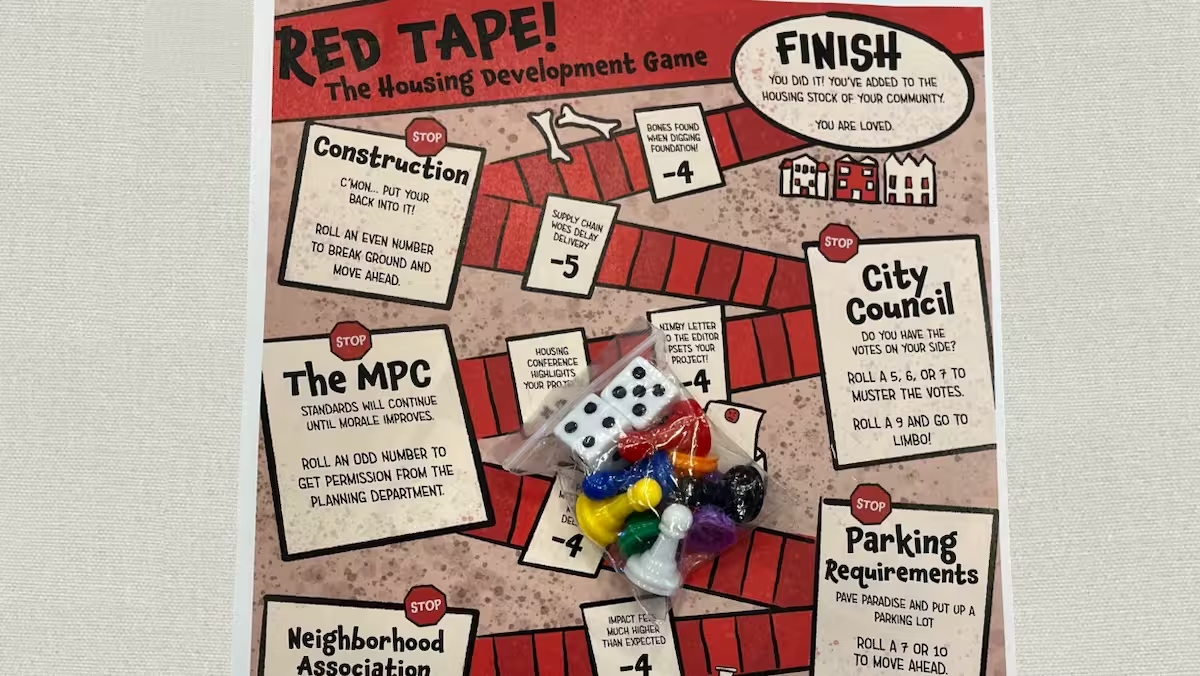Imagine this: you own a thriving art supply store in Savannah, Georgia. Across the street sits a vacant building, an eyesore that’s been empty for years. The community wants it revived, and you see the perfect opportunity: turning it into a neighborhood coffee shop.
You sign a lease, excited to invest in your block, only to find yourself trapped in a maze of permits, delays, and confusing regulations. The process is so frustrating that you almost give up multiple times.
It doesn’t make sense. If neighbors, businesses, and elected officials all agree this investment is good for the community, why is the system designed to stop you at every turn?
This is the dilemma that faced Clinton Edminster, founder of Waters Cafe.
Instead of walking away, Clinton did something unexpected. As an artist, he turned his frustration into expression by designing a board game called “Red Tape.”
The game mimics his experience of navigating city approvals:
- Neighborhood Association: Roll to gather petitions.
- Parking Requirements: Lose a turn while you redesign.
- The Bank: Roll for financing delays.
- Construction & City Council: Try again, or move back three steps.
Every square captured the illogical, discouraging hoops he had to jump through just to bring life back to a building the city had left to decay.
When the game was played at a Housing Savannah summit, it struck a nerve. City staff, elected officials, and community leaders rolled the dice and found themselves equally stuck and unable to move forward in a game designed to mirror real-life barriers. Barriers imposed by the very players of the game.
That was the “aha” moment: Red tape isn’t just frustrating; it kills good projects before they ever begin.
Instead of brushing it off, city staff took the criticism seriously. They began looking for ways to simplify and improve their processes so that residents and small business owners could invest without getting trapped in bureaucratic limbo.
The Red Tape Game wasn’t just clever art. It was a tool for reform. Clinton identified a struggle shared by many developers in the city and found a way to raise awareness to respond to this struggle. He turned private frustration into a public awakening, and it gave leaders the courage to make change.
Every community has its version of the Red Tape Game. The rules are invisible, but the outcome is the same: vacant buildings stay vacant, and citizens give up on making their place better.
But there’s another path. Cities can be critical of their current processes and strip away the needless barriers, listen to community support, and welcome local investment.
What would happen if your city leaders played your community’s Red Tape Game? What rules would stop them? What barriers would frustrate them? And most importantly, what would they do to change it?




.webp)
.webp)